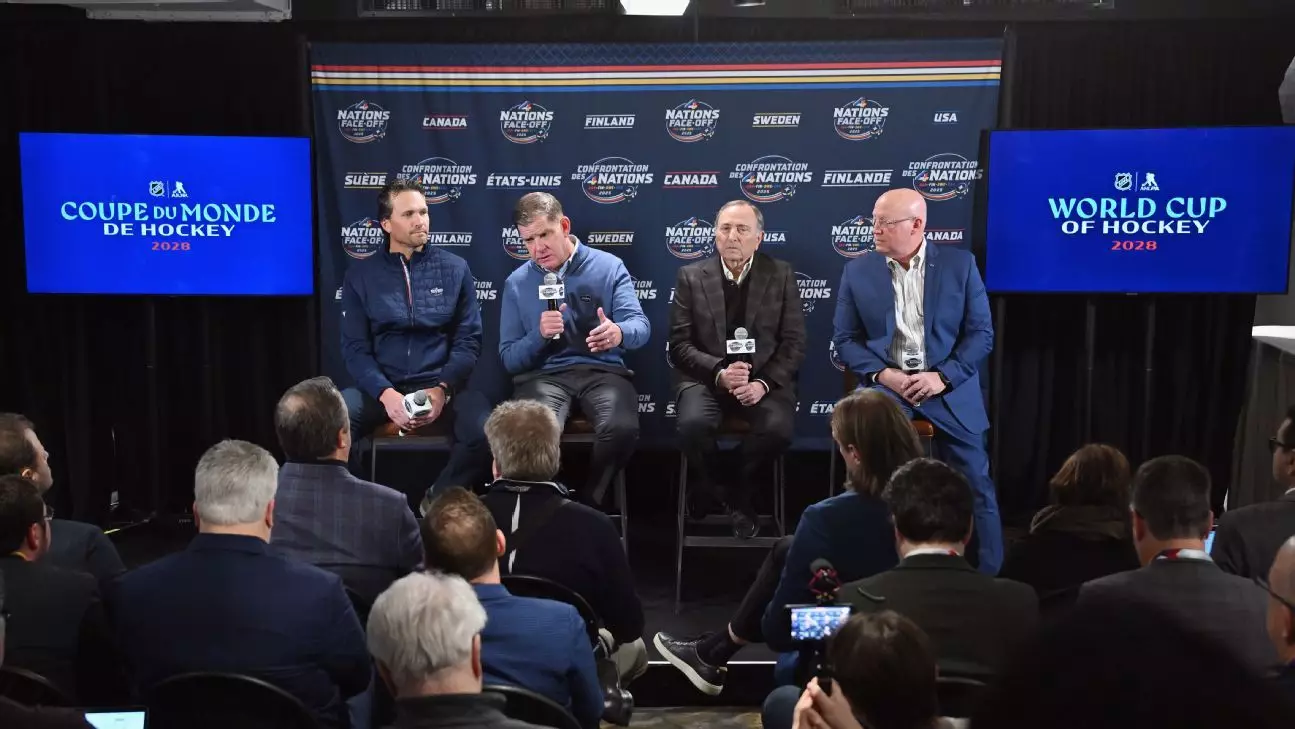The world of international hockey is on the verge of an exciting transformation, heralded by recent announcements from NHL Commissioner Gary Bettman and NHLPA Executive Director Marty Walsh. With plans to revive the World Cup of Hockey starting February 2028 and a firm commitment to include NHL players in the 2026 Winter Olympics in Milan, the landscape of competitive hockey is poised for revitalization. This ambitious strategy aims not only to recapture the glory of past tournaments but also to foster a thriving international atmosphere every two years, ultimately benefiting the sport as a whole.
Hockey aficionados have been yearning for high-stakes international play featuring the sport’s elite. The last appearance of NHL players at the Olympics was in Sochi, Russia, in 2014, and Chris Kreider’s championship-winning goal in the final against Sweden during the World Cup in 2016 underscored a significant gap in best-on-best competition. The absence of such events has left a void in the sport, with fans and players alike clamoring for the opportunity to showcase their skills on the world stage. Bettman enthusiastically described the upcoming 4 Nations Face-Off—a precursor to the future tournaments— as a “sampler,” which suggests a promising warm-up for more intense international clashes.
The NHL has witnessed many of its star players, including the likes of Connor McDavid and Auston Matthews, advocating for competitive opportunities that allow them to represent their nations during their peak playing years. The formalization of a recurring schedule purposed for major international events is a welcome change; it demonstrates a profound recognition of the need for both player engagement and fan enjoyment. Bettman’s assertion that “the full-blown World Cup is going to be sensational” reflects the optimism that such high-profile competitions can create a vibrant sporting spectacle.
As the league moves towards planning the World Cup of Hockey 2028, Bettman has hinted at various dynamics concerning host locations and tournament structure. For the first time since 2016, the format will revert to traditional national teams, excluding the blended teams seen previously, like Team Europe and Team North America. This possibility could enhance national pride and competitive spirit, as each country will field its own roster of talent.
Furthermore, by inviting bids from European cities to host the tournament, the NHL significantly broadens its geographical reach and reinforces its commitment to global hockey. The choice of venue is pivotal, as cities steeped in hockey culture can provide an electric atmosphere for fans and players alike, ultimately reinvigorating the sport’s international scene.
One of the most significant issues looming over the upcoming tournaments is the participation of Russian players, who have been barred from international competition since their country’s invasion of Ukraine in 2022. The IIHF’s ongoing ban has raised questions about the inclusion of elite Russian athletes like Alex Ovechkin and Artemi Panarin. Walsh expressed hope that political complexities could be navigated in time for upcoming events, stating, “I’d love to see our Russian players playing in these tournaments.”
This situation underscores a broader concern regarding the intersection of sports and politics, a challenge that the NHL and NHLPA must contend with as they seek to provide a platform for all athletes to compete. The NHL’s alignment with other international governing bodies suggests a cautious approach, one that prioritizes safety and public sentiment. Commissioner Bettman and Deputy Commissioner Bill Daly’s comments point to a desire for unity among international federations, indicating that the current geopolitical landscape will significantly influence the integrity of upcoming tournaments.
In addition to the excitement surrounding upcoming tournaments, the recent announcements signify a period of improved relations between the NHL and the NHLPA. Both Bettman and Walsh have highlighted their collaborative efforts, paving the way for constructive negotiations on a new collective bargaining agreement ahead of its expiration in September 2026. The expectation that a new agreement could emerge as soon as this summer instills optimism that both sides are working cohesively for the advancement of the sport.
The reinstatement of the World Cup of Hockey alongside the NHL’s commitment to Olympic participation marks a significant milestone in the evolution of international hockey. The support from players, combined with an evolving relationship between the NHL and NHLPA, presents a promising future. By fostering competitive opportunities on the world stage, the hockey community stands to benefit immensely from a rekindled passion for the sport, ensuring that the best players can once again showcase their immense talents in spirited international competition.

